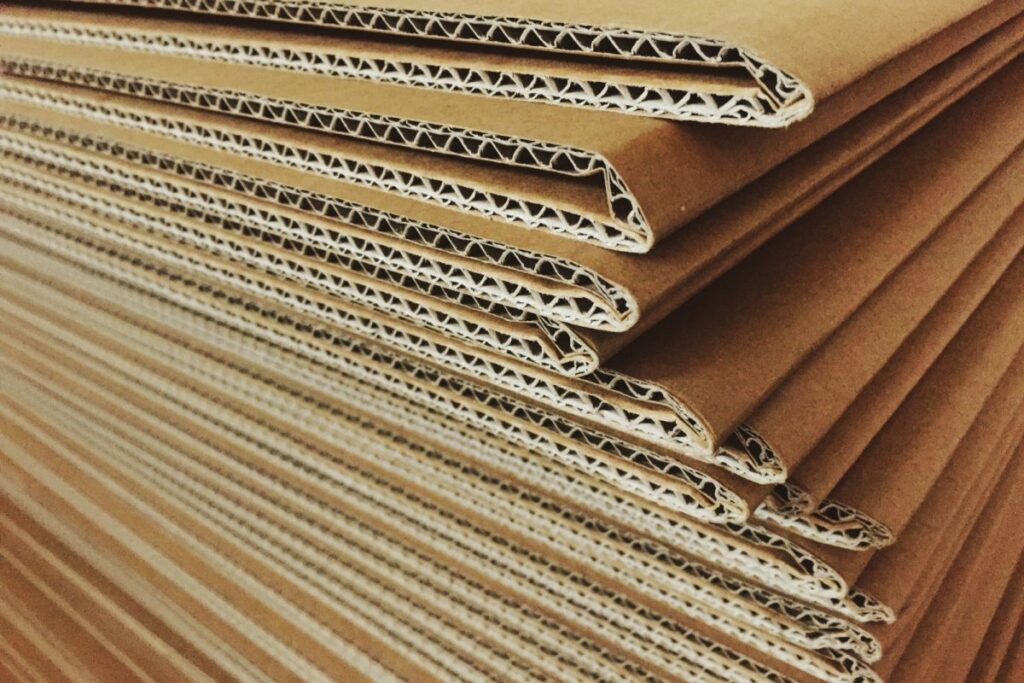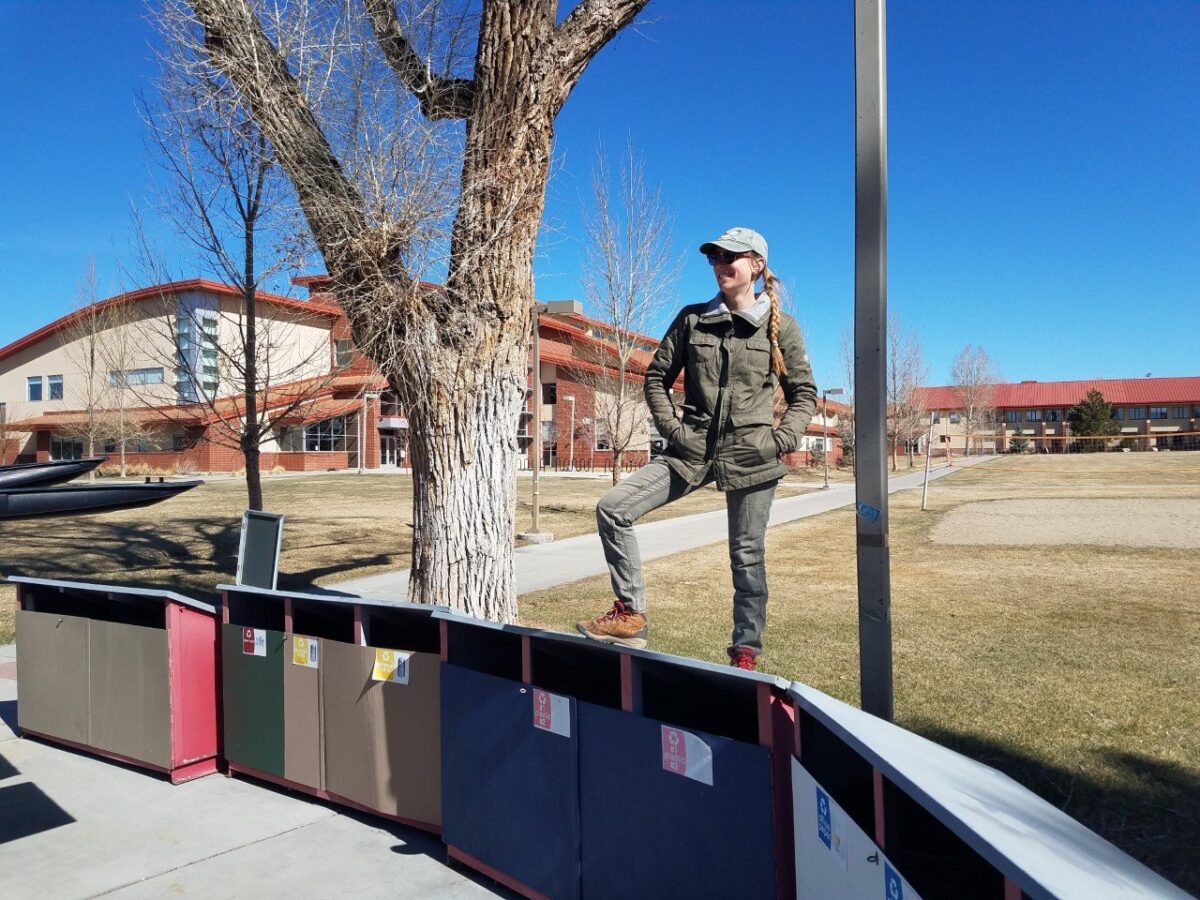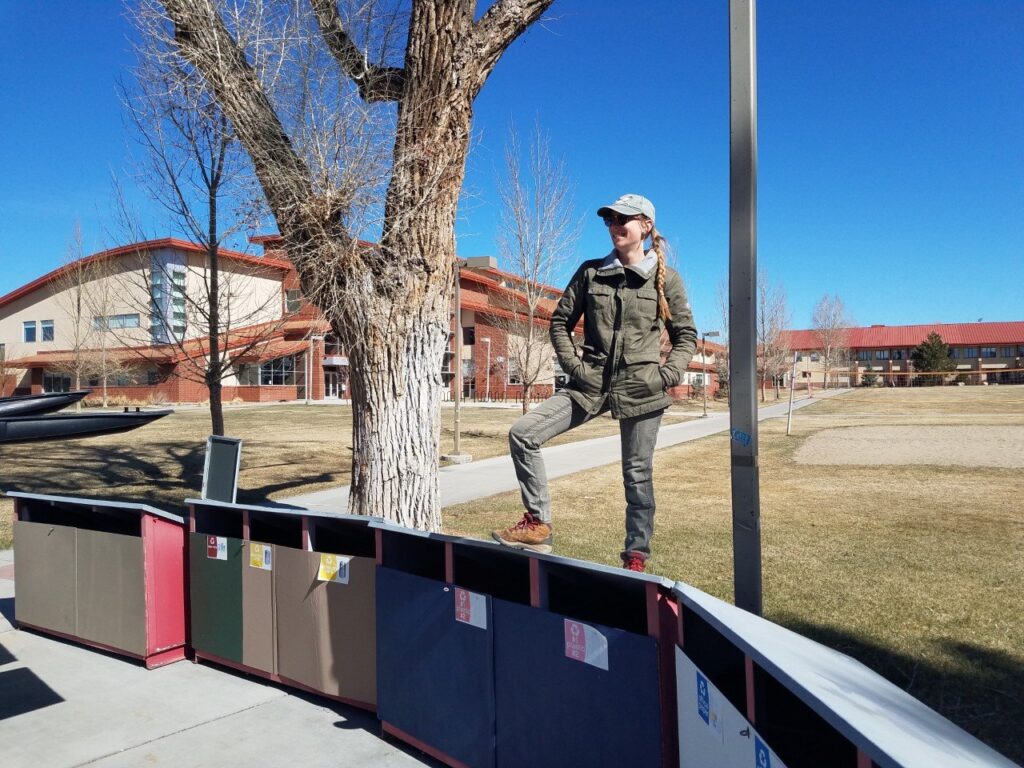
Starting on Jan. 31, Western set off on a fierce nationwide competition. The contest seeks to determine which universities can best protect the planet by limiting their consumption and maximizing their respective school’s relative recycling output. Formerly known as RecycleMania, the event is now known as Race to Zero Waste (R2ZW), and in 2021 featured more than 200 schools across the country competing to slash their waste outputs and top the scoreboard.
Campuses compete across numerous categories to see which schools can produce the most recycling per student, divert the highest percentage of materials from the landfill, recycle the most electronic waste, and compost the greatest amount of organic waste. This year, Western is competing in the diversion, per capita recycling, and electronic waste recycling categories.
Western has competed in R2ZW in the past, including last year, when Western’s calculated recycling (oftentimes referred to as diversion) rate was estimated at just under 13 percent. This figure is calculated by dividing the estimated weight of recycled materials by the total amount of trash collected from collected dumpsters. Unfortunately, last year’s figure placed Western in the bottom 20 percent of nationwide competitors.
After one week of 2022’s competition, Western’s total diversion rate is estimated at about 12 percent, including our organic waste diversion. From Jan. 31st to Feb. 6, Western’s campus generated more than 24,000 lbs. of trash across campus. The good news: Western also diverted more than 3,300 lbs. over the course of that week by recycling, composting, or feeding food scraps to animals.
Of that share, 1285 lbs. of total material was cardboard (39 percent), 960 lbs. was organic material diverted to local farmers or the Rocket Composter (29 percent), 400 lbs. (12 percent) was glass, and the remaining 20 percent was a mix of office paper and magazines, plastic, aluminum, and tin.
Looking at the raw numbers, Ashley Woolman, Western’s new Sustainability Specialist within the Facilities Department, sees a lot of untapped potential for Western this year and beyond. “There are some new, exciting recycling projects happening on campus and I think these initiatives will help reduce our overall waste and increase our diversion rate. This can have reaching effects into our community and reduce our carbon footprint,” she says.
One such initiative, spearheaded by three students in a Fall 2021 course—Paige Minert, Taylor Reweti, and Kyra McCully—is replacing every missing in-room recycling bin across all campus housing, complete with an attached recycled guide. Those bins (600 in all, enough for several years of reserves) have arrived and been labeled and are now headed into dorm rooms with the assistance of LEAD Sustainability, an on-campus sustainability education and outreach center managed by students.
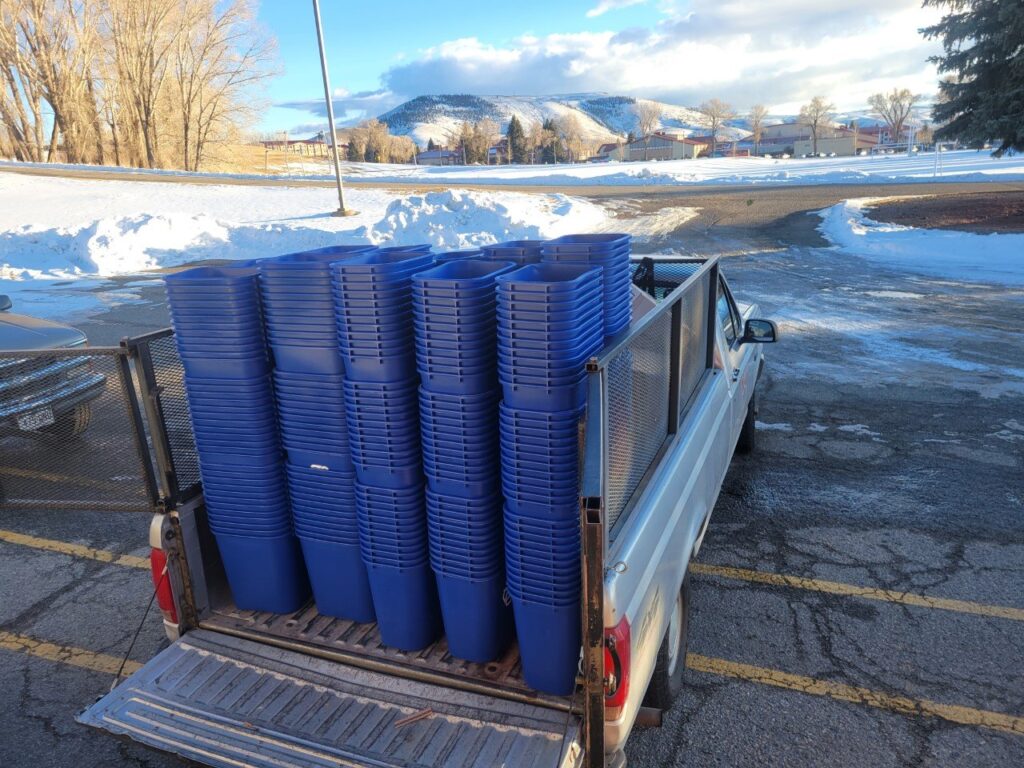
In the 2021 recycling pounds per capita category, Western produced roughly 7.5 lbs. of recycled materials per person (using the diversion rate, this means the average Mountaineer produced nearly 58 lbs. of trash over the same eight week period), landing Western right in the middle of the competition.
Over the span of the competition, Western students, staff, and faculty are estimated to have recycled more than 5 lbs. of corrugated cardboard per person, totaling more than 15,000 lbs. over the two month competition period.
Woolman readily admits that Western can stand to improve our overall recycling performance. A particular point of emphasis for her this year is reducing the contamination of recycled material with food and liquid waste.
When she first started her position back in November of 2021, Woolman said she was feeling overwhelmed by the seemingly endless possibilities for sustainability and recycling improvements on-campus. “But there’s so many classes, campus clubs and groups, and engaged students that are working on different projects, so it helps create this collective sustainability voice across campus” she says.
Beyond the pure thrill of honest, hard-fought competition, the R2ZW competition, which will run eight weeks through the end of March, is an engaging way for schools to understand and reckon with their production of waste.
The data that R2ZW requires of campuses (which includes waste and recycled material estimates for each building) is invaluable for sustainability personnel like Woolman to assess where additional efforts are most needed. Woolman is also open to student ideas and further initiatives that aim to improve or complement Western’s existing programs. Woolman can be contacted for student initiatives or questions at awoolman@western.edu
Western will know its final competition results in April 2021 and will be hosting educational events and social media campaigns (as Covid-19 precautions allow). This will hopefully include a series of educational waste audits (collecting, sorting, and analyzing waste from specific buildings) and a combined tour of the Gunnison County landfill and recycling facilities later in February, March, and beyond. Stay tuned for more information on the LEAD Sustainability Instagram (@leadsustainability) and Facebook accounts, and via flier and email.
Western, due to our remote location and the associated high transportation costs to buyers of recycled facilities, is operating at a competitive disadvantage in the recycling world. Let’s face facts: recycling is just not as easy here as it is in large cities with mixed recycling collection, and the margins for error for the Gunnison County Recycling program are smaller, especially as the price of materials fluctuates in a time of global instability.
Because of these factors, Western’s recycling program especially needs your help to reduce the consumption of disposal goods as much as possible (which admittedly can be difficult, especially under pandemic conditions) and to produce the cleanest, best sorted recycling output possible, making things easier on our hardworking Facilities Department student staff, and our Gunnison County recycling workforce.
So how can Western students, faculty, and staff help out with competition? Getting started is simple: Take the time to understand what can and cannot be recycled by paying careful attention to the posted signage (and checking out the helpful guides and graphics below), then recycle your clean and sorted products, and don’t be shy about spreading the word around campus! You can also take the Mountaineer Recycle Pledge to make a commitment to move Western closer to the ultimate goal: zero waste.
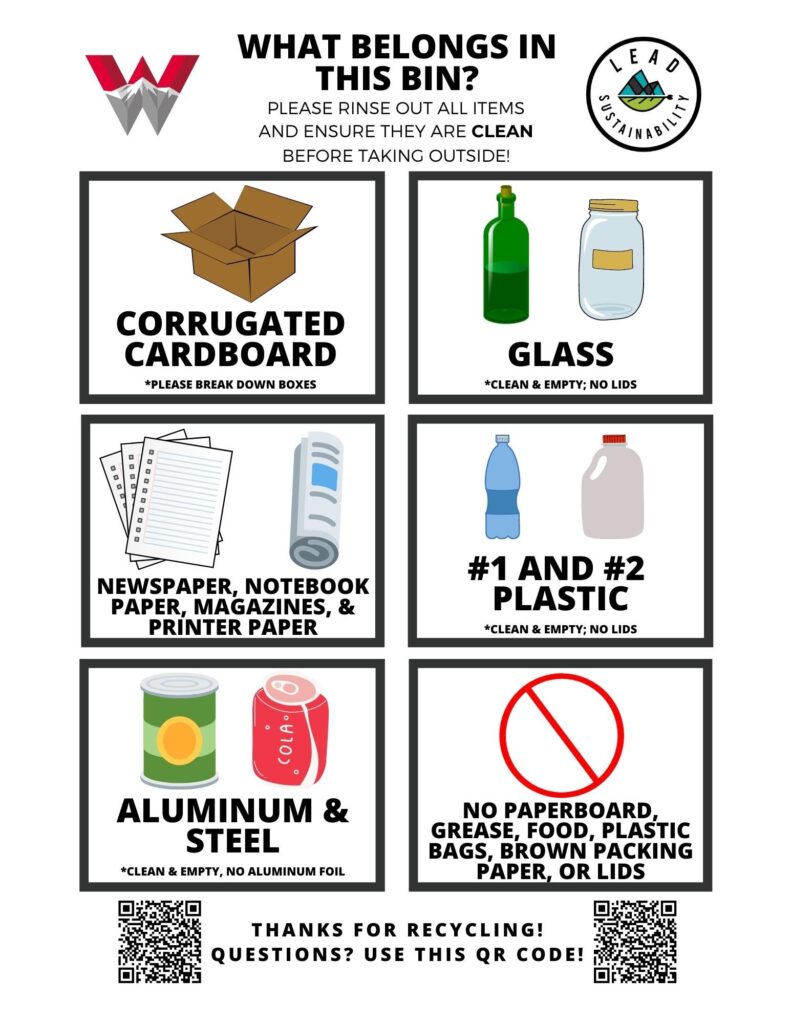
Some lesser-known items that can be recycled on Western’s campus:
- Batteries (Facilities, Whipp building)
- Used face masks (UC)
- Electronics that no longer work:
- Large items (TVs, printers, computers) can be dropped off at the IT Department (Taylor) or Facilities (Whipp)
- Small items (including cell phones) can be dropped off in the LEAD office (UC)
- Clothing, appliances and kitchen items, decor, books and games, and other approved items in good shape (it’s okay to show up and ask!) can be taken to FreeCycle in the basement of Ute Hall to be rehomed to other students or community members
On Western’s campus, the following items can be recycled across the campus recycling stations:
- #1 and #2 plastics (check the bottom if you aren’t sure, and make sure to clean them out and take off the caps first!)
- Clean green, brown, and clear glass bottles (no blue glass)
- Aluminum cans (please don’t crush them!)
- Tin/steel products
- Office paper
- Magazines/glossy paper (recycled separately from office paper)
- Corrugated cardboard- (not paperboard-make sure to check the side!)
With your help, Western can race towards a zero waste campus!
